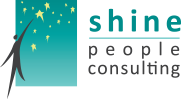So said Peter Drucker. And he’s right.
At a time of the ‘Great Resignation’ or ‘Great Reset’, people are thinking about what matters most to them in their work and life.
Organisations are experiencing people churn. Key talent is being lured away by soaring salaries. The trouble is people are only motivated by pay at the attraction stage. What keeps people in their organisations is the quality of their experience. Bottom line, what it’s like to work there.
Culture is more than just values, the way we do things here. It is also about how we feel at work. How we feel about our work matters. Really matters. Not just the work itself. It’s that question in the bar on a Friday night. What is it like to work at your place? The leadership footprint. How people show up at work. How they interact.
Why focus on feelings at work?
Most organisations underestimate how their people are feeling at work or should be feeling at work. They rely on values and behaviours to influence how people behave at work. The research is clear, it is emotions that drive behaviours. How people feel at work influences how they perform tasks, how engaged they are, how they make decisions, and how committed they are to their decision. The uptick is seen in hard measures of increased productivity, financial performance, and lowered absenteeism.
Great Place to Work
Where your organisation can’t compete on pay, then compete through culture. Start with ‘how do we want our people to feel / not feel at work?’. Then build on it.
Here’s what I have learned around embedding emotional culture into the DNA of teams and organisations.
#1 Build from the Ground Up
Most often culture identity, the values, and behaviours, are set by senior leaders. There might be some ‘consultation’, a few tweaks, and it’s rolled out across the business. The belief is that people will be on board. Truth is, often they’re not. People may feel disconnected from the story, their voice isn’t there, and there is a difference between the words and what happens in practice. Culture development that sticks starts with your people co-creating what great looks like. I use the Emotional Culture Deck tool to shape those conversations. The payoff is powerful. People own, support, and promote what they create.
#2 Sneaking the ‘f’ word …. through the back door
How to get this off the ground. You have some choices. Either big bang or small, micro-steps. I call this sneaking in through the back door. Start to normalise the feelings side of culture into everyday business as usual language so it becomes part of the organisational DNA. Embedding into everyday conversations creates comfort, familiarity, and safety in being vulnerable. Then shift to a larger culture mapping exercise.
- How do I want my people to feel/not feel in meetings?
- How do I want my people to feel/not feel in 1:1’s?
- How do we want our people to feel in this change?
- How are you feeling about this? How do you want to feel? What needs to change to shift the dial for you?
- Build internal emotional culture allies, from the top down and right across the organisation.
#3 Set up people for success
Give them the language and the tools to express how they are feeling. That’s where the Emotional Culture Deck comes in. The perception may be that your people won’t engage. The reality is different. Open the space and they will step in, open to sharing their stories. Position it as a game (which it is) and tailor the game for your audience.
#4 Get Comfortable with Getting Uncomfortable
Talking about the ‘f’ word at work is uncomfortable for many. Some will see it as ‘unprofessional’. We need to open the door. Leaders go first. Get open and vulnerable. Pave the way and others will follow. They may even jostle with each other to get their share out. Build a culture of psychological safety where it’s safe to speak up, take risks, and be vulnerable in front of each other without fear of ridicule or punishment.
#5 Beware false positivity
This isn’t about a one-size ‘positive vibes only’ culture. Suppressing negative emotions in favour of a false happy, optimistic state across all situations is artificial and unhealthy for the long game. Look to normalise the conversation around the negative. Over time it shifts people’s relationship with the negative to one of curiosity around their triggers and how to manage the impact.
#6 Plan tight, Hang Loose
Be flexible. Have a development plan but be open to changing course depending on what is important to your people. Give them shared leadership in co-designing the direction. Invite them to play and collaborate. What problem do we need to solve? What do we need to stop/start/continue doing? Plan tight, hang loose.
Relational Pauses
Right now, in a hybrid work world people are calling to come together. To spend time together. If we can’t pause and make time to connect, we can’t craft what is needed to create a better today and tomorrow. We may end up focusing on the wrong things. Focus on what matters most to your people.
If you want to create a kick-ass culture, where people wake up inspired to come to work; where they want to give their best, then flip the conversation around culture and performance.
Curious to find out more? Reach out for a chat about how to humanise your workplace culture.
Here are some other ways you can learn more about The Emotional Culture Deck:
- Visit theemotionalculturedeck.com
- Download a free Lo-fi PDF version of the deck at the website, click here
- Complete The Emotional Culture Deck Online Masterclass course here
#emotionalculturedeck #proelephantrider #ridersandelephants #emotionalculture

This Post Has 0 Comments